Search Results
Showing results 1 to 20 of 43
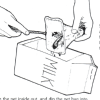
Water Holes to Mini-Ponds
Source Institutions
Dig a hole, line it, fill it with fresh water, and you have a water hole: a good place to study colonization.
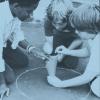
Isopods
Source Institutions
In this outdoor activity, learners dig for and collect isopods (sometimes known as "roly-poly bugs" or "potato bugs" and other names).
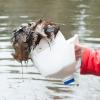
The Scoop on Habitat
Source Institutions
Some aquatic organisms live in open water, while some live in soil at the bottom of a body of water.

Lichen Looking
Source Institutions
In this outdoor activity, learners search for lichen, a combination of a fungus and an alga living together. Lichen grow where most other plants cannot, on rocks, the trunks of trees, logs and sand.
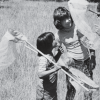
Animal Diversity
Source Institutions
In this outdoor activity, learners find, count and compare as many different kinds of animals as they can find in two different areas: a managed lawn and a weedy area.
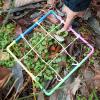
Counting With Quadrants
Source Institutions
Millions of organisms can live in and around a body of water.

Sensory Hi-Lo Hunt
Source Institutions
In this outdoor activity, learners use only their senses to to find the extremes of several environmental variables or physical factors: wind, temperature, light, slope and moisture.

Hopper Herding
Source Institutions
In this outdoor activity and game, learners roundup a "herd" of hopping insects and find out how many different kinds or species are in their herd.

Variation Game
Source Institutions
In this set of outdoor games, learners play the role of monkeys that are trying to get enough resources (food, shelter, and space) to survive.
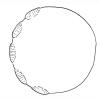
Elephant Foot
Source Institutions
Using a real-size sketch of a baby elephant's footprint, learners estimate, measure and record the width (diameter) and outside edge length (perimeter or circumference) of the footprint.
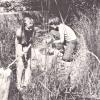
What Lives Here
Source Institutions
In this outdoor activity/field trip, learners explore an aquatic site such as a pond, lake, stream, river or seashore to find and investigate plants and animals that live in water.
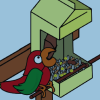
Bird Feeders
Source Institutions
In this activity, learners build a bird feeder or feeders to attract birds for observation.

Dip Dip, Hooray
Source Institutions
Lakes, streams and other freshwater bodies are a habitat for lots of living things, big and small.
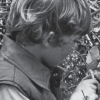
Snug as a Bug
Source Institutions
In this outdoor activity, learners make models of homes that might protect small animals from the elements, then search living plants for real structures made by small animals.
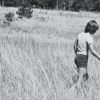
Animals in a Grassland
Source Institutions
In this outdoor, warm weather activity, learners use sweepnets to search a grassy area such as a large lawn or field, collecting small animals to find as many different kinds of animals as possible.
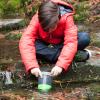
Window Under Water
Source Institutions
Glare from the sun and ripples from the wind can make it hard to see what's below the surface of a body of water.
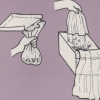
Shake It!
Source Institutions
In this outdoor activity that can be combined with a hike, learners try to match a "mystery community" by shaking animals out of different trees and shrubs.
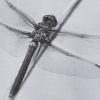
Damsels and Dragons
Source Institutions
In this outdoor activity/field trip, learners conduct experiments to explore where dragonflies and damselflies perch or rest, and how the flies change behavior in reaction to other flies or fly decoys
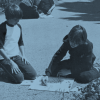
Plant Patterns
Source Institutions
In this outdoor mapping activity, learners explore where plants grow and map plant-distribution patterns.

Cool It
Source Institutions
In this outdoor activity/game, learners use thermometers to simulate how lizards survive in habitats with extreme temperatures.
